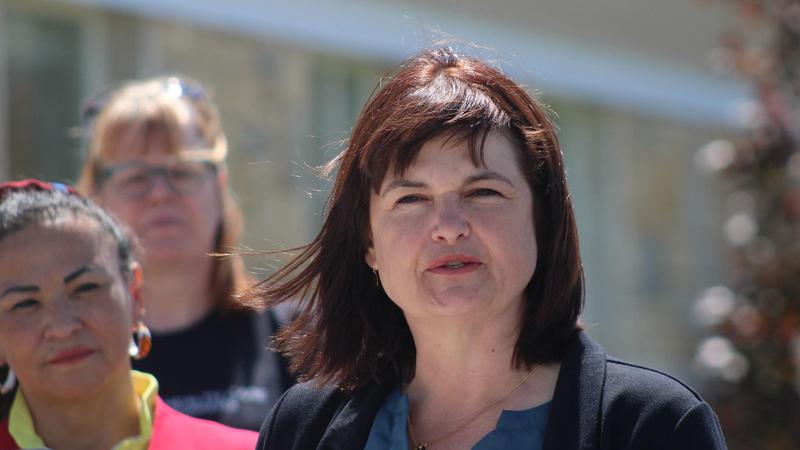
NDP says government refusing to act on Shellbrook hospital issues
The provincial opposition says the government is not acting on staff suggestions to help resolve shortages at the Shellbrook Hospital.
The building has had 10 acute care beds closed over the last month because of a lack of staff. NDP leader Carla Beck stood outside the hospital Friday as part of a media conference.
“They have said the tools are available from the provincial government but we’re not seeing them acting on that,” Beck said.
Beck explained the shortages extend across the spectrum from doctors to nurses and lab tech, adding one of the things the province is doing is posting temporary jobs, which makes it difficult to recruit if it involves moving for only one year.


